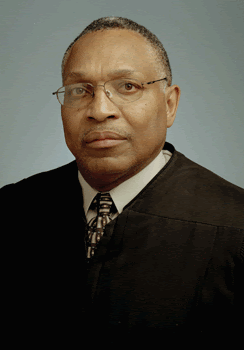Monday, June 11, 2007
Pwned !

A dozen administration-smooching lawyers get pwned by Judge Walton.
A dozen of the country's most respected constitutional scholars have leapt to I. Lewis "Scooter" Libby's aid, asking a federal judge if they could try to convince him about critical legal questions that favor letting Libby remain free while he appeals his conviction in the Valerie Plame leak case.
Within hours of Friday's filing from the scholars, U.S. District Judge Reggie B. Walton wrote back. In the teeny-tiny print of a footnote, he said he was delighted to know that such a distinguished group was available to help argue on behalf of criminal defendants on "close questions" of the law.
Walton promised he'd ring them up very soon when -- instead of Vice President Cheney's former chief of staff facing the threat of the slammer -- there might be poor defendants who need big legal minds to avoid incarceration.
Walton sentenced Libby last week to 30 months in prison and will hold a hearing on Thursday to consider whether Libby can remain free while his case is appealed.
"It is an impressive show of public service when twelve prominent and distinguished current and former law professors of well-respected schools are able to amass their collective wisdom in the course of only several days to provide their legal expertise to the Court on behalf of a criminal defendant," Walton wrote in granting the scholars' request.
He added: "The Court trusts that this is a reflection of these eminent academics' willingness in the future to step up to the plate and provide like assistance in cases involving any of the numerous litigants, both in this Court and throughout the courts of our nation, who lack the financial means to fully and properly articulate the merits of their legal positions."
Indeed, it was an impressive group, including former Supreme Court nominee Robert Bork and ... Alan Dershowitz. ...
Also joining the brief were Vikram Amar of the University of California's Hastings law school, Randy Barnett and Viet Dinh of Georgetown, Douglas Kmiec and Robert Pushaw of Pepperdine, Richard Parker of Harvard, Gary Lawson of Boston University, Thomas Merrill of Columbia, Earl Maltz of Rutgers and Robert Nagel of the University of Colorado.
The group argued in a six-page brief that Libby, who was convicted of lying to investigators probing the leak of Plame's identity, has a decent shot at appeal on the question of Special Counsel Patrick J. Fitzgerald's appointment to investigate that leak. That appointment was likely inappropriate, they argued, because Fitzgerald lacked any supervision that would make his superiors "politically accountable."


